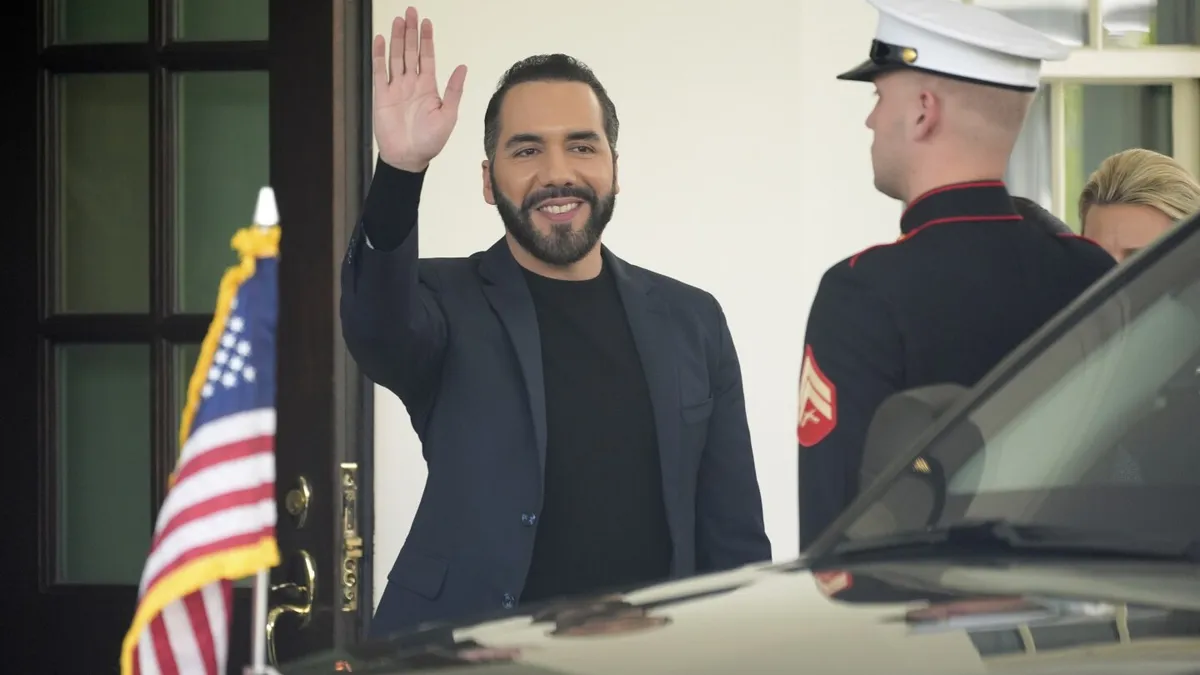
In a significant diplomatic move, Salvadoran President Nayib Bukele has proposed a controversial prisoner swap with Venezuela. This proposal, announced on a recent Sunday, involves exchanging Venezuelan deportees held in El Salvador for what Bukele refers to as “political prisoners” currently imprisoned in Venezuela. This initiative has sparked discussions about humanitarian agreements and international relations.
Bukele took to the social media platform X to communicate directly with Venezuelan President Nicolás Maduro. In his post, he highlighted the plight of various detained individuals, including family members of prominent opposition figures, journalists, and activists who were apprehended during Venezuela's recent electoral crackdown. Bukele criticized Maduro's government, stating, “The only reason they are imprisoned is for having opposed you and your electoral fraud.”
The proposed exchange entails the repatriation of all 252 Venezuelans deported to El Salvador, in return for the release of an equal number of political prisoners held in Venezuela. Bukele specifically mentioned several individuals, including the son-in-law of former Venezuelan presidential candidate Edmundo González and political leaders who are currently seeking asylum in the Argentine embassy in Venezuela. Additionally, he referenced 50 detained citizens from various countries around the globe.
This ambitious proposal comes at a time when El Salvador is facing intense international scrutiny regarding its treatment of Venezuelan and Salvadoran deportees. Under the previous Trump administration, many of these individuals were accused of being gang members, often with minimal evidence to support such claims. Currently, these deportees are confined in a notorious facility known as the Terrorism Confinement Center (CECOT), which was established by Bukele's government as part of a broader crackdown on gang violence in the country.
The situation has been further complicated by the case of Kilmar Abrego Garcia, a Maryland father married to a U.S. citizen who was among those deported. His case has ignited legal battles as efforts are underway to secure his return to the United States.
In light of the ongoing controversy, El Salvador’s Archbishop José Luis Escobar Alas has urged President Bukele to reconsider his stance, warning against allowing the nation to become “a big international prison.” This statement reflects the growing concern among various sectors of society regarding the treatment of deportees and political prisoners.
Despite the backlash and international criticism, President Bukele remains steadfast in his assertion that all individuals detained in the mega-prison are part of a comprehensive operation targeting gangs, such as the Tren de Aragua, which have connections extending into the United States.
As Bukele prepares to engage El Salvador’s foreign ministry in discussions with the Maduro government, the international community is watching closely. The outcome of this proposal could have significant implications for diplomatic relations between El Salvador and Venezuela, as well as the treatment of deportees and political prisoners in both nations.
Overall, this proposed prisoner swap highlights the complexities of international diplomacy, human rights, and the ongoing challenges faced by individuals caught in the crossfire of political disputes.